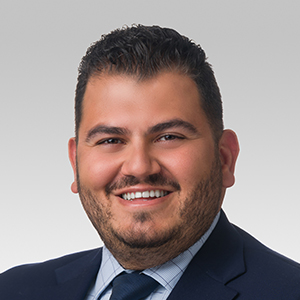What Is Spinal Stenosis?
A Neurosurgeon Breaks Down Symptoms, Risks and Treatments
Published April 2024
Think of your spine as a bony channel that contains all the nerves that connect your brain to your body. Spinal stenosis is a condition where this channel becomes narrow, putting pressure on the nerves that travel through it. The pressure on your nerves can cause pain and other symptoms.
Northwestern Medicine Neurosurgeon Najib El Tecle, MD, shares what you need to know about spinal stenosis.
Fast Facts About Spinal Stenosis
We're even treating spinal stenosis endoscopically with very small incisions.— Najib El Tecle, MD
- The narrowing is typically caused by degeneration of the spine from aging or arthritis.
- The condition most often affects the lower back.
- Degenerative changes in the spine affect almost everyone above the age of 50. Spinal stenosis is one of those changes.
Symptoms of Spinal Stenosis
Symptoms can vary, and many affected individuals may have no symptoms at all.
Symptoms include:
- Pain that may be worse when walking or, in the lower back, may cause sciatica, a sharp pain that extends down the back of the leg
- Numbness
- Muscle weakness
- Problems with bladder and/or bowel function
What Puts You at Risk for Spinal Stenosis?
- Aging
- High body mass index (BMI)
- A personal history of smoking
- A family history of spine problems
- Previous spinal injury
- Arthritis
Treatment Options
While there is no cure for spinal stenosis, your care team can help you manage the condition. Treatment may include a combination of:
- Home remedies, including hot pads and cold packs
- Physical therapy
- Medications and injections to alleviate pain and inflammation
- Surgery to relieve the pressure on the spinal nerves
"We're even treating spinal stenosis endoscopically with very small incisions," says Dr. El Tecle. "However, lifestyle changes such as maintaining a healthy weight, regularly exercising and keeping good posture can be beneficial in managing your symptoms."






